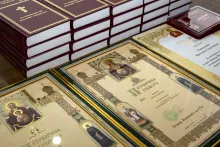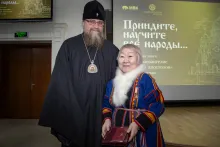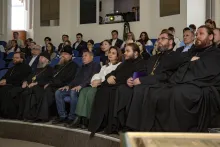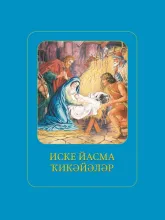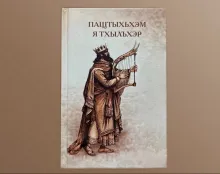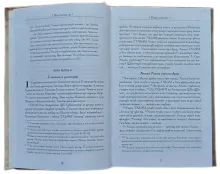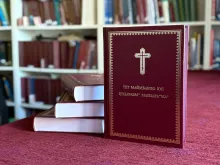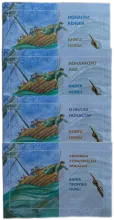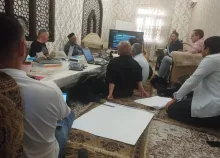the-book-of-ruth-in-the-even-language
The Institute for Bible Translation has released an illustrated edition of the book of Ruth in the Even language of eastern Siberia. The publication was carried out with the blessing of Archbishop Roman of Yakutsk and Lensk.
The new edition is bilingual: the Even translation, produced by translator M.N. Taishina and editor R.P. Kuzmina, is accompanied by a parallel Russian text. The book is decorated with traditional Even ornaments and distinctive illustrations by artist M.P. Adamova...
presentation-of-the-nenets-four-gospels-and-acts
The official presentation of the Four Gospels and Acts in the Nenets language took place in Salekhard on October 15, 2025. The event was organized by the Salekhard Diocese of the Russian Orthodox Church and was held in the conference hall of the Shemanovsky Museum and Exhibition Complex, dedicated to the history of the Orthodox mission on the Yamal Peninsula.
bible-stories-in-siberian-tatar
The Institute for Bible Translation (IBT) continues its publication of translations into the Siberian Tatar language. Following the Gospel of Mark, published earlier in 2025, "Bible Stories" has now been released in Siberian Tatar. Bible Stories is a collection of narrative passages recounting the main events described in the Old and New Testament, from the creation of the world to the book of Revelation. The book is a concise version of the well-known Children's Bible, which IBT has published for many years and continues to publish in various languages...
1-2-samuel-and-1-2-kings-in-kabardian
The Institute for Bible Translation (IBT) has released a new publication – the books of 1,2 Samuel and 1,2 Kings in the Kabardian language of the North Caucasus.
These four books (also known as 1-4 Kingdoms in the Greek and Russian tradition) belong to the historical section of the Old Testament. They narrate the stories of famous kings and prophets of the people of Israel: Saul, David, Solomon, Elijah, and many others. These texts describe the establishment of the monarchy, its first achievements and failures, the glorious deeds of David and the wise reign of Solomon, and the subsequent history of the divided Northern and Southern Kingdoms with their complex neighborly relations...
four-gospels-and-acts-in-nenets
IBT has published an important new book in the Nenets language: the Four Gospels together with the Acts of the Apostles.
The edition opens with a welcoming address by Orthodox Archbishop Nicholas of Salekhard and Novy Urengoy. He emphasizes that reading the New Testament is indispensable spiritual nourishment for believers and contributes to a person's moral transformation. He also notes that this translation is not merely a linguistic project, but the fruit of immense labor requiring deep theological and language knowledge, as well as love for the Word of God and for the Nenets people.
bible-in-transcaucasian-kurmanji-kurdish
ibt-training-seminar-on-oral-bible-translation
On June 22-26, 2025, the Institute for Bible Translation conducted a seminar for new translators from various Dagestanian languages, including those with no writing system. During this training event, IBT launched several new projects that will be using oral Bible translation (OBT) methodology. New projects have now been launched in the Archi, Botlikh, Murego-Gubden, Tindi, Khvarshin, Tsez and Chirag languages. The seminar, structured as a blend of lectures on theory and practical sessions, marked the beginning of these initiatives.
book-of-ruth-in-abkhaz
The Institute for Bible Translation has published a translation of the Old Testament book of Ruth in the Abkhaz language. Previously, the book of Jonah (2023) and a collection of Gospel Parables (2023) had been published in Abkhaz. This edition was printed in Abkhazia’s capital city, Sukhum (a.k.a. Aqwa).
The Abkhaz language belongs to the Abkhaz-Adyghe branch of the Northwest Caucasian language family. It is one of the official languages of Abkhazia, together with Russian, and is spoken primarily in Abkhazia and Turkey.
jonah-in-four-romani-languages
workshop-on-poetic-discourse-in-turkic-languages
A workshop on "Discourse in the book of Proverbs in Turkic languages," organized by the Institute for Bible Translation, was held in Tashkent on April 21-24. Translators and exegetical advisers from the Altai, Balkar, Siberian Tatar, Khorazm and Kyrgyz Bible translation projects participated.


